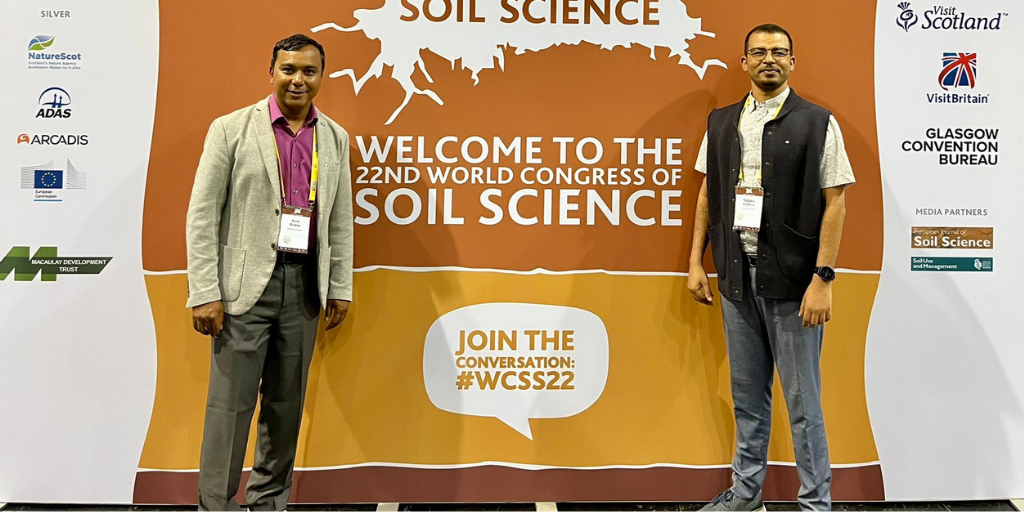The field of soil science is undergoing a transformation that could revolutionize data-driven sustainable soil management.
A recent Food from Thought-funded study led by Dr. Asim Biswas, a professor in the School of Environmental Science and Tegbaru Gobezie, PhD candidate in the School of Environmental Sciences, highlights the untapped potential of soil data and proposes a novel solution to address the challenges of data ownership and sharing. The proposed model, known as Soil Shareward, aims to encourage data sharing among various stakeholders while also rewarding those who generate the data.
Soils support essential ecosystem functions such as food and water security, biodiversity, and climate change mitigation. However, the mismanagement of this non-renewable resource poses a significant threat to global sustainability. To combat this issue, emerging technologies such as robotics, proximal, aerial and remote sensors, digital soil mapping, and advanced data analysis techniques like machine learning and artificial intelligence, offer unprecedented opportunities for improved decision-making and sustainable soil management.
Despite these advancements, the full potential of generated soil data remains largely untapped due to inadequate data sharing. Data siloing hampers the achievement of soil data federation and obstructs the path toward sustainable soil management. The research report proposes the Soil Shareward model as a data-sharing business model that connects stakeholders in the soil data landscape and provides incentives for data generators.
Dr. Biswas explains that the heart of the Soil Shareward model is the “eSoilVouchers.” Like eVouchers, these vouchers would serve as rewards for data generators, referred to as SoilPatrons, which can include countries and institutions.
“The model would use Blockchain technology to assign unique identifiers, known as SoilPrints, to soil datasets and track their use while ensuring data privacy and ownership. Data contributors would accumulate credit points by utilizing data linked to SoilPrint, thus creating an autonomous system that promotes sharing, collaboration, innovation, and recognition,” said Dr. Biswas.
The generated eSoilVouchers could be traded among SoilPatrons, exchanged for data, sold for cash, or applied to agreements, debt, and loan payments. By implementing this model, bilateral, multilateral, and inter-governmental projects would be encouraged to share soil data, fostering collaboration and driving sustainable development. The Soil Shareward model aligns with the principles of FAIR data, ensuring that data remains findable, accessible, interoperable, and reusable.
The research report presents a hypothetical scenario involving two countries, Ethiopia and Kenya, to illustrate the model’s potential. The Ethiopian Soil Information System (EthioSIS) has valuable soil data, which could greatly benefit Kenya’s agricultural systems. However, due to a lack of data sharing, the dataset is not accessible across borders. By employing the Soil Shareward model, Ethiopia would be incentivized to share its soil data, accumulating eSoilVouchers in return. These vouchers could then be used for various purposes, such as repaying loans to funders such as World Bank, further strengthening international collaboration to tackle food and water security and climate change challenges.
The research team believes the proposed Soil Shareward model could help advance soil data stewardship. However, the study suggests that successful implementation at scale requires rigorous testing for specific use cases and consideration of the regulatory landscape in different jurisdictions. Additionally, governance and infrastructure management must be addressed through established organizations like the International Soil Reference and Information Centre (ISRIC) or the Food and Agriculture Organization of the United Nations (FAO) or by creating a new data center dedicated to managing soil data sharing.
The research report calls for action to validate and implement the Soil Shareward model, recognizing its potential to revolutionize soil management.
Read the full report here: https://rdcu.be/dcHmA


